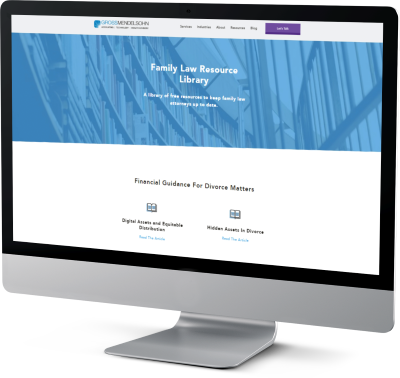In many divorces, a significant asset of the marriage is an S corporation. Oftentimes, the business owned by the S corporation is the source that will be used to make lifetime distributions to a spouse.
Two important aspects of S corporations prevent a simple solution to this problem.
- One is the requirement that distributions on S stock be pro rata, so there is no way to have distributions directly from an S corp to just one shareholder and not others.
- Second, S corporations are only allowed to have one class of stock. There cannot be a preferred interest that pays just the amount of the alimony, or contains any differences in benefits upon a liquidation.
In a recent IRS private letter ruling, the IRS held that a trust set up under a divorce decree could qualify as the S corp shareholder even though one of the trust’s beneficiaries had a right to a lifetime distribution from the trust with no rights in the trust after death, and the other spouse could take distributions from the trust to pay off certain liabilities against the S corporation stock.
Based on the facts outlined above, the trust was violating both the uneven distribution and having no remainder interest in liquidation rules, and would appear to not qualify to be an S corp shareholder. The IRS, however, ruled that the shares in the trust would not be considered a second class of stock.
The Devil Is In the Details
The devil is in the details of the trust and the agreement.
The trust was deemed to be a single trust having two shares: one for John and one for Mary. Some or all distributions received by the trust from the S corporation will be used to make required payments on the liabilities against which the S corporation stock was pledged, and those payments will be deemed to be made equally from John’s share and Mary’s share. So how can you make up for the uneven distributions?
In exchange for Mary agreeing to have the liabilities paid from her share, John’s share will issue to Mary’s share a promissory note for amounts paid out of Mary’s share with respect to the liabilities.
The IRS reasoned that a commercial contractual agreement, such as the loan agreement, is not a binding agreement relating to distribution and liquidation proceeds of the S corp and is therefore not a governing provision, as long as a principal purpose of the agreement is to circumvent the one class of stock requirement.
Although a corporation is not treated as having more than one class of stock so long as the governing provisions provide for identical distribution and liquidation rights, any distributions (including actual, constructive, or deemed distributions) that differ in timing or amount are to be given appropriate tax effect in accordance with the facts and circumstances.
The IRS concluded that the trust agreement is not a governing provision that is required to be taken into account in determining whether there are two classes of stock. Accordingly, the trust agreement is disregarded in determining whether the outstanding shares of S corporation stock confer identical rights to distributions and liquidation proceeds. S corporation will not be considered as having more than one class of stock, according to Reg § 1361(b)(1)(D), as a result of the trust agreement.
So What's Next?
The interesting follow up question is, “Could this structure be used to help make sure a spouse receives at least a minimum distribution from a trust?”
Let’s consider an example where a spouse is supposed to get a minimum lifetime annual income of at least $100,000 and no residual ownership. Assuming distributions from the S corp are at least $200,000 a year, you have no issues. But if distributions were $150,000, a loan could be used to get the minimum amount to one spouse, and the loan would then be paid off in a year when distributions were greater than $200,000 in a year.
If a trust structure is a way to provide trustee protection of assets to accomplish your divorce goals, a private letter ruling is recommended to ensure that a structure like this is approved by the IRS. You want to make sure you do not end up losing the company’s S corp status.
For Help
Our Forensics & Litigation Support Group works with family law attorneys on all financial and tax aspects of divorce litigation, including alimony and child support calculations, business valuation and uncovering hidden assets. If you have questions about the tax treatment of a business in divorce proceedings, contact us online or call 800.899.4623.


